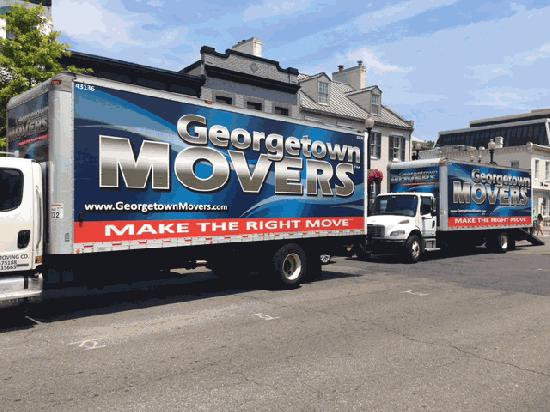How Much Does a Long-Distance Move Really Cost?

Moving to a new home in a different state—or even across the country—can be a big deal. There’s a lot to think about, from packing your belongings to settling into a new environment. But one of the biggest questions people often ask themselves before starting this journey is: How much does a long-distance move really cost?
The answer isn’t as straightforward as you might think. It depends on several key factors, and understanding them can help you plan better and avoid surprises along the way. Let’s break it down.
What Counts as a Long-Distance Move?
Before we dive into the costs, let’s first understand what qualifies as a long-distance move.
|
Move Type |
Distance Range |
Example |
|
Local Move |
Under 100 miles |
Within the same city |
|
Intrastate Move |
Over 100 miles (same state) |
Dallas to Houston |
|
Long-Distance Move |
State-to-state or 400+ miles |
New York to Chicago |
|
Cross-Country Move |
Coast-to-coast |
California to Florida |
So, if you’re moving from one state to another, or more than a few hundred miles, you’re likely dealing with a long-distance moving cost.
Factors That Affect the Cost
Here are the key factors that determine how much you’ll pay for a long-distance move:
1. Distance
- The further you go, the more it costs. It’s that simple.
- A move of 500 miles will generally cost less than a move of 2,000 miles.
2. Volume of Items
- Movers usually calculate cost based on weight or volume.
- More stuff = more money.
- Large furniture and heavy appliances increase the price significantly.
3. Time of Year
- Moving during peak season (summer months) is often more expensive.
- Off-peak times, like winter, may come with discounts.
4. Services Included
- Packing/unpacking, storage, and special handling (like for pianos or antiques) will add to your bill.
- Some people choose to pack themselves to save money, but professional packing can be a time-saver.
5. Access Issues
- If movers need to climb stairs, use elevators, or park far from your home, expect additional charges.
Extra Costs You Might Not Expect
Sometimes, unexpected charges can catch you off guard. Watch out for:
- Fuel surcharges
- Toll charges
- Storage fees if your new home isn’t ready yet
- Insurance coverage upgrades
- Last-minute changes or delays
This is where hiring experienced professionals, such as Georgetown Moving and Storage, can make a difference. They provide clear estimates and help manage the move efficiently, making the process smoother.
Ways to Reduce Costs
Want to keep your long-distance moving cost under control? Here are some tips:
- Declutter: Get rid of things you don’t need. Less to move = less to pay.
- Pack smart: If you have time, pack your own belongings.
- Book early: Prices go up when availability gets tight.
- Ask for flat-rate pricing to avoid surprises.
- Compare quotes from the best moving companies but remember that the cheapest option isn’t always the best.
Is It Worth It to Hire Professionals?
This is a common dilemma. DIY moves might seem cheaper, but there’s a lot to consider:
Pros of Hiring Professionals:
- Saves time and energy
- Reduces risk of damage or injury
- Insurance covers your belongings
- Makes for a stress-free move
Cons:
- Higher upfront cost
- Less control over the process
Ultimately, it comes down to what matters more to you: saving money or saving time.
Final Thoughts
The cost of a long-distance move varies a lot, depending on where you’re going, how much you’re taking with you, and what services you need. It helps to plan ahead, get detailed quotes, and understand all the factors at play.
Companies like Georgetown Moving and Storage are familiar with every twist and turn in the moving process and can help guide you through it. With their support, your next move doesn’t have to feel overwhelming.
Frequently Asked Questions
How far in advance should I book a long-distance move?
Ideally, 6–8 weeks in advance, especially during summer or holiday seasons.
Can I move during winter to save money?
Yes, moving in winter or off-peak times usually results in lower costs.
What is included in the basic cost of a long-distance move?
Typically, loading, transport, and unloading. Packing, storage, and insurance are often extra.
Are long-distance moves insured?
Most moving companies provide basic coverage, but you can purchase additional insurance for better protection.
Do movers provide storage if my new home isn’t ready?
Yes, many best moving companies offer temporary storage for an extra fee.









